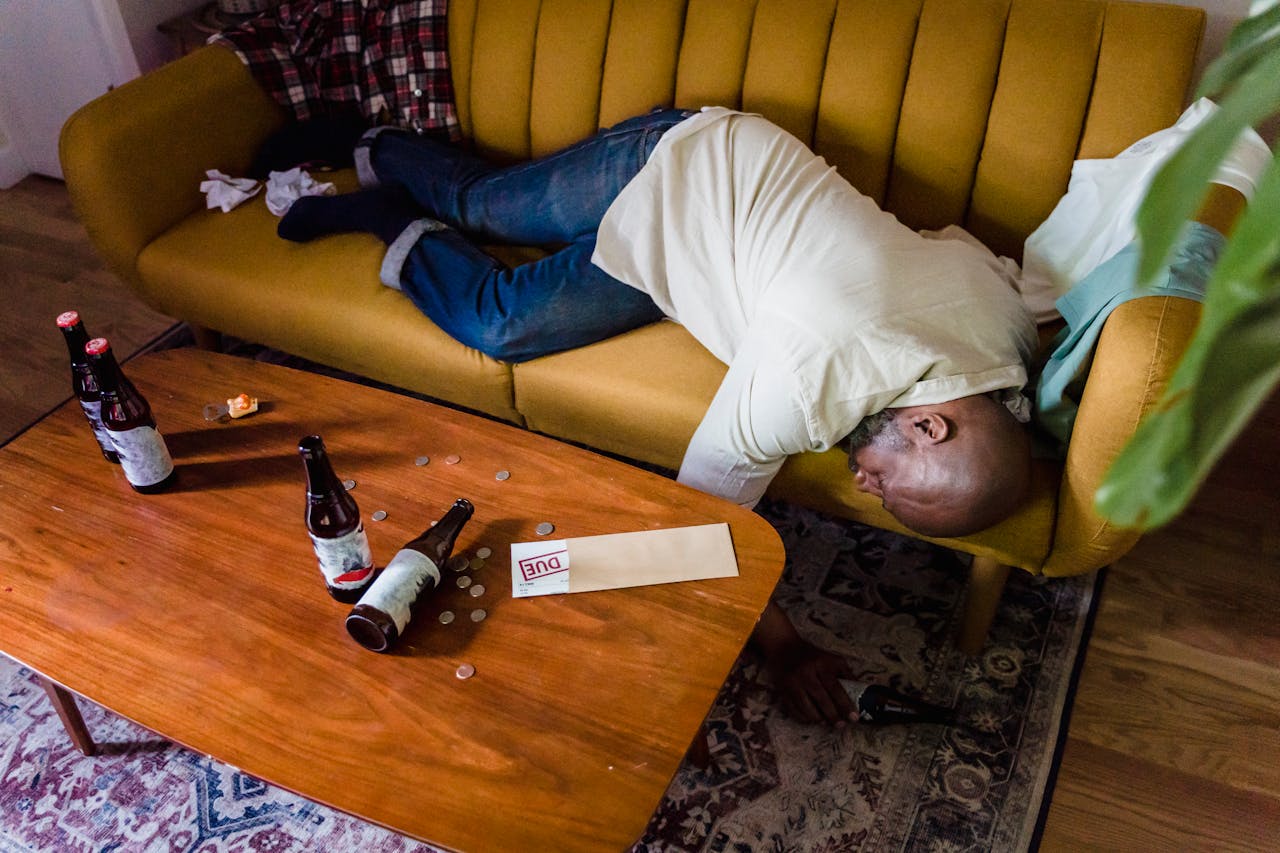
Most people think of alcohol as just a drink that helps them relax or have fun with friends. But what’s happening inside your brain is way more complicated than that. Your brain doesn’t just bounce back to normal after a few drinks. It actually starts changing in ways you can’t see or feel, at least not right away.
Table of Contents
Your Brain on Alcohol: The First Changes
When you drink alcohol, it goes straight to your brain within minutes. Think of your brain as having different switches that control how you feel and act. Alcohol flips these switches, making you feel relaxed, happy, or confident. But here’s the thing your brain doesn’t want to stay unbalanced.
Your brain is always trying to keep everything steady, so when alcohol keeps showing up, it starts making adjustments. It’s basically trying to prepare for the next time alcohol arrives. These adjustments happen slowly, which is why most people don’t notice them happening.
The Chemical Balancing Act
Your brain uses chemicals called neurotransmitters to send messages between brain cells. Two of the most important ones are dopamine and GABA. Dopamine makes you feel good and motivated, while GABA helps you feel calm and relaxed.
When alcohol enters your system, it boosts both of these chemicals artificially. Your brain gets flooded with good feelings. But over time, your brain says “Hey, we’re getting too much of these good-feeling chemicals from the outside, so we need to make less of our own.”
Programs that focus on Legacy Healing’s alcohol addiction treatment understand how these brain changes work and help people restore their natural chemical balance through medical support and therapy.
This is where things get tricky. When your brain makes less of its own feel-good chemicals, you need alcohol just to feel normal. Without it, you feel anxious, sad, or restless because your brain isn’t producing enough of what it needs naturally.
Memory and Learning Take a Hit
Alcohol also messes with the parts of your brain that handle memory and learning. The hippocampus, which is responsible for making new memories, gets smaller when exposed to alcohol regularly. This doesn’t just mean forgetting what happened last night. It means your brain becomes less good at forming any new memories.
The prefrontal cortex, which helps you make decisions and control impulses, also changes. This part of your brain is what stops you from doing things you know you shouldn’t do. When alcohol damages this area, it becomes harder to say no to another drink, even when you know you should stop.
Tolerance: Your Brain’s Defense Mechanism
Tolerance is one of the clearest signs that your brain has changed. When you first started drinking, maybe one beer made you feel relaxed. But after drinking regularly for a while, you need two beers, then three, then more to get that same feeling.
This happens because your brain cells become less sensitive to alcohol. They’ve adapted to expect it. Your brain has literally rewired itself around alcohol being present. This isn’t a choice or a lack of willpower. It’s your brain doing what brains do: adapting to their environment.
The Stress Response Gets Confused
Alcohol also changes how your brain handles stress. Normally, when something stressful happens, your brain releases chemicals to help you deal with it. But when you’ve been drinking regularly, your brain starts to rely on alcohol to handle stress instead of using its own natural systems.
This creates a cycle where stressful situations feel impossible to handle without alcohol. Your brain has forgotten how to cope naturally. Work stress, relationship problems, or even small daily frustrations can feel overwhelming because your brain’s natural stress-fighting tools have gotten weaker.
Sleep and Mood Changes
Even though alcohol might help you fall asleep at first, it actually disrupts your sleep patterns. Your brain goes through different stages of sleep to repair itself and process information from the day. Alcohol interferes with these stages, especially the deep sleep that’s most important for brain health.
Poor sleep then affects your mood, concentration, and decision-making during the day. You might feel irritable, have trouble focusing, or feel depressed. Many people don’t realize these problems are connected to their drinking because the effects build up so gradually.
The Good News: Your Brain Can Heal
Here’s what many people don’t know: your brain has an amazing ability to heal itself. Scientists call this neuroplasticity. When you stop drinking, your brain can start making its own feel-good chemicals again. The areas that control memory and decision-making can recover too.
This healing doesn’t happen overnight. It can take weeks or months for your brain chemistry to rebalance. During this time, you might feel anxious, depressed, or have trouble sleeping. This is your brain learning to function normally again without alcohol.
Why Understanding This Matters
Knowing how alcohol changes your brain helps explain why quitting can be so hard, even when someone really wants to stop. It’s not about being weak or lacking willpower. Your brain has physically adapted to expect alcohol, and it takes time to readjust.
Understanding these changes also helps explain why professional help can be so important. Medical professionals can help manage the physical symptoms that happen when your brain is rebalancing itself. Therapists can teach new ways to handle stress and emotions while your brain is healing.
Moving Forward
Your brain is incredibly resilient, but it needs support to heal from the changes alcohol has made. Recovery involves giving your brain time to restore its natural balance while learning new ways to feel good and handle stress. The changes alcohol makes are real and physical, but they’re not permanent. With the right support and time, your brain can find its way back to healthy functioning.

